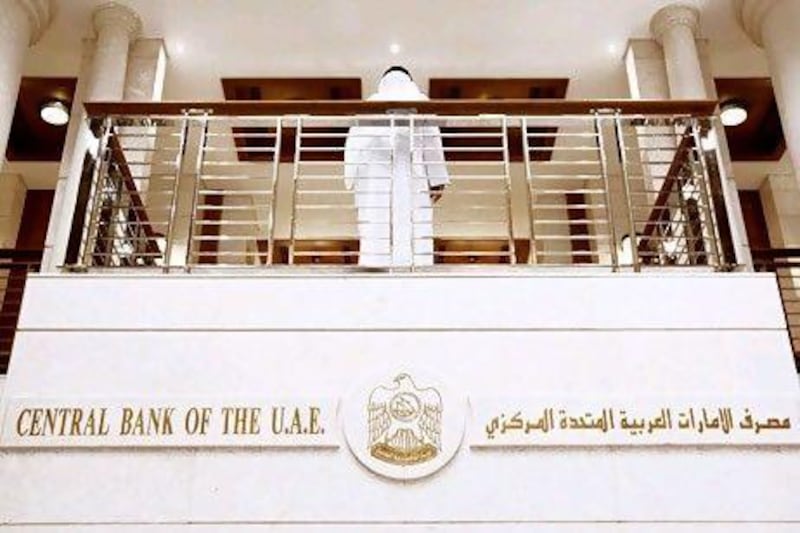The Central Bank plans to report within a week whether any Libyan assets have been frozen in the UAE's financial system.
The action is in response to UN sanctions against the Libyan leader, Col Muammar Qaddafi, and his associates in the war-torn country.
Responses are being gathered by the regulator from lenders about whether they have any exposure to 19 Libyan individuals and institutions, said Abdulrahim Al Awadi, the executive director of the Central Bank's anti-money laundering and suspicious cases unit.
The unit "is in the process of receiving responses from banks and other financial institutions and is preparing a report for onward submission to the Ministry of Foreign Affairs", Mr Al Awadi said yesterday.
The ministry would then pass the report to the UN Security Council, he said. "We have instructed [banks and other financial institutions] to search for and freeze any accounts or investments or deposits and to stop any fund transfer or to seize any safe-deposit boxes belonging to any individual or institution which appears on the two UN Security Council resolutions."
The first resolution, passed in February, orders the freezing of the assets of Col Qaddafi, his immediate family and other individuals.
Under the second resolution, passed in March, officials as well institutions including the regime's sovereign wealth fund - the Libyan Investment Authority - and the Libyan National Oil Corporation are subject to asset freezes.
Lenders were told in March to inform the UAE regulator if they held any assets for individuals or institutions covered by the resolutions and to freeze any such assets.
As a regional financial centre attracting money flows from across the Middle East, the UAE has been gradually tightening money laundering regulations in recent years.
The Central Bank this month instructed lenders to find and freeze any assets of Zine El Abidine Ben Ali, the ousted Tunisian president.
The extent of the UAE banking system's exposure to Libya is so far unclear. The chief executive of National Bank of Abu Dhabi, Michael Tomalin, in March described the bank's exposure to Libya as "extremely modest". If any assets are frozen in the UAE, the Emirates would be following similar action taken by countries including the US, the UK, Germany and Australia. With an estimated US$65 billion (Dh238.74bn) of assets, the Libyan Investment Authority was a particularly active investor in European companies.
But some of Libya's assets are tied up in Gulf banks.
Libya's central bank raised its stake in the Bahrain-based Arab Banking Corporation to 59.3 per cent last December after buying out the Abu Dhabi Investment Authority's holding in the bank. Arab Banking held $406.3 million of Libya's deposits as of June 30 last year, according to a document obtained by the advocacy campaigner Global Witness.
The interim governments in Tunisia and Egypt have called for a global freeze on the assets of former regime members.





